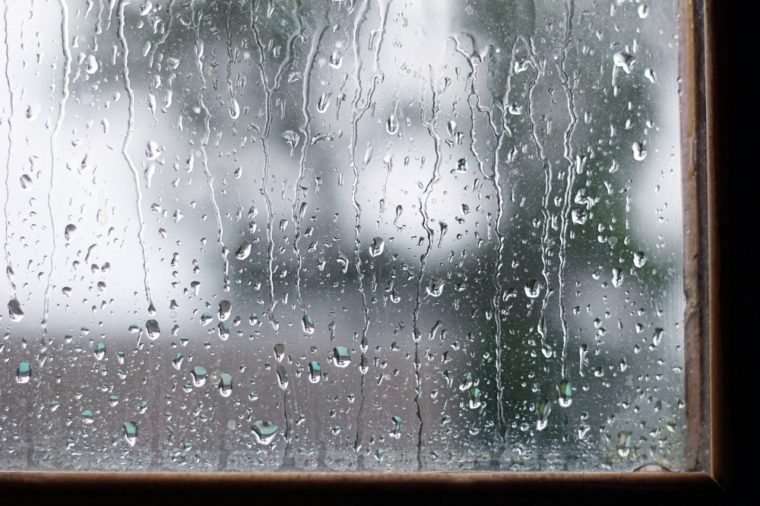These are two of the most common mental health conditions in the United States, but getting good treatment depends on knowing the difference. Here’s what you need to know to recognize the symptoms in yourself or a loved one.
Anxiety equals constant worry
Although they’re similar, anxiety is marked by nearly unending worry, unlike depression. “When I see someone in therapy, I pay attention to the words they use like, ‘I was freaked out,’ ‘I can’t stop obsessing about all the bad things that can happen,’ ‘I’m afraid that…’—all of those are clues to me that anxiety may be the problem to explore,” says psychologist Susan Fletcher, PhD. It’s normal to be anxious sometimes, such as before a big presentation at work, but anxiety goes way beyond that. “When these experiences become difficult to manage because they interfere with work, school, relationships, and self-care, they can become ‘disorders,’” Dr. Serani says. “Worrying to the point of it consuming a good deal of your day is called obsessive thinking or ruminating—and is a sign of an anxiety disorder.” Read what it’s like to have generalized anxiety disorder.
Depression is a loss of hope
Depression may also be called major depressive disorder or clinical depression and is marked by a persistent sad, hopeless, or “empty” feeling that lasts for more than two weeks. “Depression is a state of depletion—often, you feel as if your body is broken and soul has been siphoned away,” Dr. Serani says. “Your thoughts are corrosive and you feel utterly hopeless.” These feelings are a real illness and not something you can just “snap out of.” In fact, depression is the number one cause of disability among adults under 44 years old. “Depression seizes areas of the brain that seek pleasure, happiness, and feel-good chemistry, so the deprivation of such functioning makes it hard to find joy, contentment, or hope,” Dr. Serani says. Find out the things to never say to someone with depression.
Different kinds of anxiety
Although many people suffer from generalized anxiety disorder, there are specific types that depend on what tends to make you most anxious. A common type is social anxiety: “Social anxiety is the feeling of worry or fear in social interactions,” Fletcher says. “Social settings and social activity can trigger the anxiety, so many people avoid interaction.” More than a third of social anxiety sufferers wait ten or more years before getting help. Sudden occurrences of rapid heartbeat, sweating, or difficulty breathing are signs of panic attacks, the hallmark of panic disorder. Other forms of anxiety can include specific phobias like heights or insects. Post-traumatic stress disorder (PTSD) is also classified as an anxiety disorder. Here’s what else social anxiety disorder psychologists wish you knew.
Depression messes with mood
In terms of depression vs. anxiety, depression is classified as a mood disorder because it affects your emotional state. “The illness of depression affects the mind—cognitive symptoms, the body—physical symptoms, and the soul—emotional symptoms,” Dr. Serani says. Along with just feeling sad, these emotional feelings may include “despair, apathy, low self-confidence, pessimism, and worthlessness,” she says. In addition to major depressive disorder, persistent depressive disorder is also marked by periods of depressed feelings over a period of at least two years—but, symptoms are not as bad as with major depression. Here’s more of what psychologists wish people knew about depression.
Anxiety may be the root of depression’s irritability
The stresses of mental illness would make anyone cranky, so it’s not surprising that both conditions have irritability as a symptom—but actually, anxiety is usually the underlying culprit. “Mixed depression with anxiety more often has irritability or agitation as symptoms than depression alone,” Dr. Serani says. “The reason is that stress hormones like cortisol, epinephrine, and acetylcholine more often accompany anxious-depression than non-anxious depression.” These hormones are produced in the adrenal glands and are responsible for activating our fight or flight response. “When you are depressed and also have anxiety, your adrenal system may be working on overload,” she says. Research has also shown that irritability with depression may signify a more severe case. Check out some more tips for understanding and managing anxiety.
Both affect concentration
The two conditions each mess with your mind and can make it hard to perform everyday tasks without getting overwhelmed. But the reasons that depression vs. anxiety causes mental problems like difficulty focusing and concentrating aren’t the same. “Each disorder works differently,” Dr. Serani says. “With depression, there is a slowness of thinking and focus due to under activity in the frontal lobe of the brain. With anxiety, certain brain functions and neurochemistry, like the stress hormone cortisol, pitch a person into a heightened state of alert, which will impede concentration.” Depression, especially when it occurs along with anxiety, has been shown in research to impede memory; and may even cause memory problems due to structural changes in the brain, a 2018 study in Neurology found. Here are some of the silent signs of high-functioning anxiety.
Both have physical symptoms
The chemical effects of neurotransmitters also leave their physical mark on the body with anxiety and depression. People with depression may either sleep too much or not enough, and insomnia is a hallmark of anxiety’s constant state of high alert. “Neurotransmitters love to interfere with sleep,” Fletcher says. “Someone who wakes up early and can’t turn their brain off is suggestive of anxiety, while someone who has trouble waking up is suggestive of depression.” Symptoms of fatigue could be partly due to lack of sleep, and studies also point to the role of inflammation in causing tiredness with depression. In addition: “Depression and anxiety have both been linked to poor appetite or overeating, as well as gastrointestinal issues, stomach pains, and indigestion,” Serani says. Watch out for the foods that can make your depression worse.
Depression leads to suicidal thoughts or actions
Although both anxiety and depression can lead to suicide, “90 percent of people who die from suicide have depression,” Dr. Serani says. Anxiety’s role in suicide isn’t as well-established, but research from Australia suggests that anxiety symptoms are more likely to lead to suicide ideation than depression alone. Another study found that among people who attempted suicide, over 70 percent had an anxiety disorder. “One of the problems with the overlap is that it gives them the energy that can fuel the actual act if they have thoughts of suicide,” Fletcher says. If you or a loved one are at risk of suicide, call the National Suicide Prevention Lifeline, 1-800-273-8255 (TALK) 24 hours a day. Check out more ways to help someone with depression, according to psychologists.
Treatment is available
According to the National Institute of Mental Health, only half of people with mental illness receive treatment—yet both anxiety and depression are highly treatable. Although medications are available—anti-depressants are used to treat anxiety as well as depression, along with anti-anxiety drugs—psychotherapy is also helpful, and is often used in connection with meds or alone. Cognitive-behavioral therapy, which teaches different ways of thinking, can be useful for anxiety, as can support groups. Stress management techniques can also help relieve anxiety. Exercise and mindful meditation, both of which alter brain chemistry, have also been shown to help depression. Find out the silent signs you might be depressed.
Correct diagnosis is critical
Even though treatments may be similar, it’s still important that your therapist correctly identifies your condition in order to tailor their approaches to the problem. “We diagnose depression and anxiety based on the symptoms someone is experiencing,” Fletcher says. “People who are depressed often feel stressed in their depression which can look like anxiety, but it is really tenseness or restlessness.” Such confusion can often lead to misdiagnosis if the patient is not a good reporter of all their symptoms, she says, so be sure to tell your doctor everything you’ve been going through. These quotes about depression can capture exactly what you’re feeling.











No comments:
Post a Comment